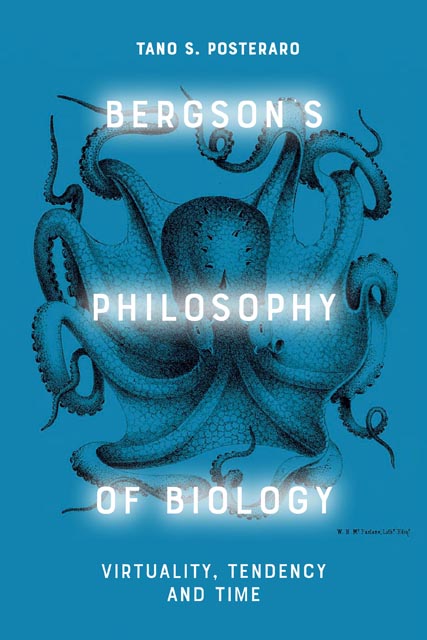Book contents
- Frontmatter
- Contents
- Acknowledgements
- Abbreviations
- Introduction: Between Philosophy and Biology
- 1 The Actual: Mechanism, Finalism, Modality
- 2 The Virtual: Instantiation, Implication, Dynamics
- 3 A Discourse on Tendency
- 4 Individuality and Organisation
- 5 Finalism Inverted
- 6 Canalisation and Convergence
- Concluding Remarks and Future Directions
- Notes
- Bibliography
- Index
3 - A Discourse on Tendency
Published online by Cambridge University Press: 25 October 2023
- Frontmatter
- Contents
- Acknowledgements
- Abbreviations
- Introduction: Between Philosophy and Biology
- 1 The Actual: Mechanism, Finalism, Modality
- 2 The Virtual: Instantiation, Implication, Dynamics
- 3 A Discourse on Tendency
- 4 Individuality and Organisation
- 5 Finalism Inverted
- 6 Canalisation and Convergence
- Concluding Remarks and Future Directions
- Notes
- Bibliography
- Index
Summary
The central concept in my reconstruction of Bergson's philosophy of biology is the idea of tendency. Though Bergson develops this idea throughout his work, he does not provide it with systematic exposition. In this chapter I trace the idea of tendency across Bergson's major texts and interpret it according to the virtual mereology of Chapter 2. Then I parse the idea of tendency according to recent work in the metaphysics of powers. I hold that tendency is directional inclination, the essence of movement. Its modal status is neither actual, nor possible, nor potential, but virtual. Tendencies are qualitative multiplicities, virtual wholes tending into concrete actuality through processes of bifurcation, dissociation, and the determination of parts.
Introduction
This chapter develops the metaphysics of tendency in Bergson's philosophy of biology by interpreting it through the modal mereology of the virtual. The rest of the book builds out his philosophy of evolution on this basis. Chapter 4 puts the metaphysics of tendency to work in a series of reconsiderations of Bergson's views on the time/space and life/matter dyads. In Chapter 5, I show how the idea of tendency is what lies behind Bergson's image of the élan vital.
I begin by situating the idea of tendency against the background of Bergson's study of psychological effort. The concept of tendency is meant to capture a form of effort de-subjectivised, dislocated from personal psychology and generalised across all forms of directedness. The chapter traces the development of the idea of tendency across Bergson’s work, from its initial employment in Time and Free Will's introspective account of free acts through to its formulation as a concept in its own right, in Bergson's last texts. Bergson works out the features of tendency first according to the structure of time and the dynamic reality of movement. In Creative Evolution, he provides tendency with a metaphysical extension, making it intrinsic to becoming in general. In its mature formulation, tendency is directional inclination. It is what accounts for the open-ended development of the evolutionary process.
By setting tendency apart from more familiar modal categories such as possibility and potentiality, I show how tendency accounts for actualisation processes while preserving the ineliminable novelty of duration. Bergson's theory of tendency involves the mereology of the virtual. Tendencies are qualitative multiplicities, virtual wholes tending into concrete actuality through processes of bifurcation, dissociation, and the determination of parts.
- Type
- Chapter
- Information
- Bergson's Philosophy of BiologyVirtuality, Tendency and Time, pp. 104 - 131Publisher: Edinburgh University PressPrint publication year: 2022



